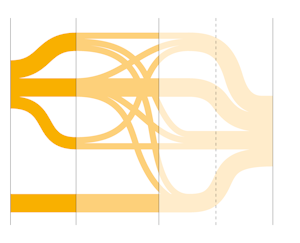The second consultation letter went out in late November 2022, and respondents had until 20 January 2023 to reply. The second round of consultation was more concrete and detailed than the first, and those consulted were invited to submit comprehensive answers. In the first round a total of 38 different suggestions for continuing education courses were received along with a number of proposed changes to existing study programmes. Twenty-three responses were received during the final round.
Fewer study places as a result of the government budget
NMH saw its circumstances change when the proposed government budget for 2023 was published. Amongst other things, the academy will lose the 70 study places allocated during the pandemic. When the second round of consultation began, Principal Astrid Kvalbein and Vice-Principal Gunnar Flagstad were clear that if the NMH is to create any new study programmes, others will have to go. They also called for flexibility and room for specialisation within the existing framework.
